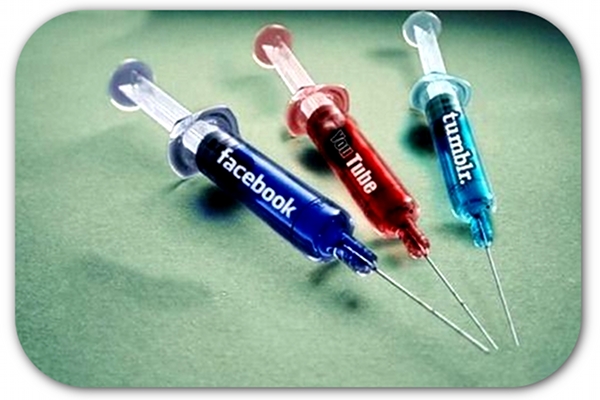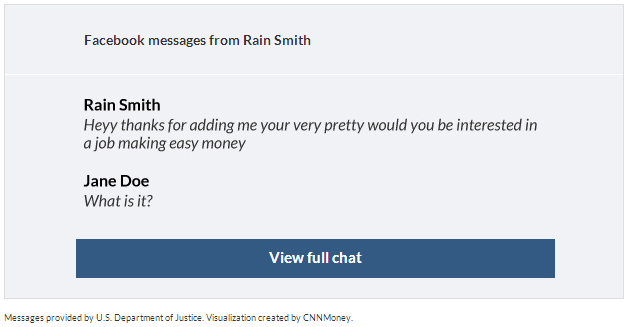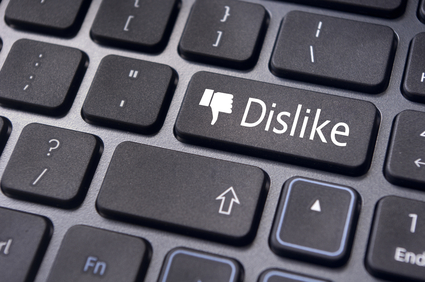The social network training wheels parents provided for Facebook are beginning to shift to something new now that teenagers are moving more exclusively to other social network sites like Twitter. With adults seeming to be taking over Facebook and the endless battles over privacy issues, can teens really find more peace, tranquility and safety over at Twitter? According to a Pew Report, kids were finding better methods of expression on Twitter (and Instagram) than Facebook has ever provided.
Guest Post: Creating a Tween-Friendly Environment On Social Media
Whether we like it or not, we all know that tweeners are more active on social media now than ever.
Take a look down any hallway in a middle-school, and you will see kids everywhere hiding their smart phones in their lockers and bags to make a quick text or social media update.
We don't need to review the consequences and dangers of children being online unattended. We see stories about it each night on prime time TV. Horrific stories of children being abducted and held in the custody of demented strangers.
Digital Parenting: 5 Signs Your Child is Addicted to Facebook
Social networking sites are a popular way for children and teenagers to keep in touch with each other and stay updated with what is going on in their lives. Facebook is currently the most popular site by far, and the process of updating your own status, and looking at other users' information, can take up quite a bit of a child's time. Unfortunately, some kids are on the site far too often and for long durations of time, leading to what can be called "Facebook addiction". This can lead to slipping grades, disciplinary problems, and social anxiety.
Stepping in before Facebook addiction becomes a real problem can be done with sensible digital parenting and Parental Intelligence solutions, but it always helps to know what to look for in order to tell if your child is addicted to Facebook. These 5 signs should be taken very seriously and if they are present, you should be prepared to set rules and limits on Facebook usage.
1. Is your child constantly on Facebook?
A child being constantly on Facebook is a sure sign of Facebook addiction. If their time on the site can be summarized as "multiple hours a day", you should have a talk with your child and let them know that it can be potentially unhealthy to be on Facebook for so long every day. Facebook monitoring programs can help you determine how long they are on and what exactly they are doing on the site.
Digital Parenting: How To Do It Like a Pro
Dads and moms can’t be everywhere at once. While we would all like to be able to meet all of our work, family, and social obligations while still being able to keep both eyes squarely on our kids at all times, life just doesn’t work that way. Still we need to be conscientious parents and we’d like to know what’s going on with our kids for those hours a day that their heads are burrowed into their phones, tablets, laptops, and computers. Digital parenting is one of the newest trends sweeping the nation and this is something which has been borne out of both curiosity and necessity.
What it is: Digital parenting gives parents the tools they need to monitor their kid’s virtual activities. It’s no secret that there are bad people out in the world. The virtual and literal anonymity of many corners of the online world have made it vital that your kids be kept an eye on.
10 Things Parents Do On Social Media That Embarrass Their Kids
Most adolescents and teens can’t imagine a world without Facebook, Twitter and other social media sites. As a parent, you may feel a responsibility to monitor your child’s social media use, and that makes sense.
However, it’s important to make a distinction between necessary monitoring, which you’re doing for your child’s safety, and simply impinging on their social life and interactions with their friends. Facebook for kids is a form of interaction – one that most children want limited to their peers as much as possible.
Here are 10 things that parents do on social media that might be embarrasing to their children:
Social Media Monitoring: You Can't Turn a Blind Eye to Facebook
With the advent of social media and the fact that kids are spending more time on the internet now more than ever, parents need to be extra sure to pay special attention to what their kids are getting into online. In the past, one of the biggest concerns you might have had as a parent dealt with the kind of kids that your child spends a lot of time with. Now, social media sites such as Facebook give kids an outlet that can reach quite literally the majority of the people that your child may know. This can be just fine if your children are trustworthy and responsible with what they share, but some children cross the line, whether it has something to do with sexting, online bullying, or making inappropriate comments.
Why Pheed will Replace Your Child's Facebook and Instagram
Pheed is the latest in social media and is positioned to replace Facebook and Instagram in the near future. Why? Because it offers so much more sharing options than Facebook, Youtube and Instagram combined and some of its features will make your online parenting harder.
What is Pheed?
Pheed is a social media app that is available only on iPhones and online. Soon, it will also be available on Android phones, as well. If your child accesses Pheed using only their phone, any online parenting software that you use to track your child's social media usage will be useless. This could be a major draw for kids who have their own phones.
Each user gets what is called a "channel" which is much like Facebook's wall. Users can post their information for everyone to see, or they can close their channel. If a user closes their channel so that only certain people can see it, they have the option of charging other users to view the channel. This can be a highly attractive feature for younger users who may let the wrong users see their channels all in the name of making a profit.
We Must Embrace Digital Parenting, Ready Or Not
Perhaps before asking the question "What types of technology are our children ready for?", we should ask ourselves "Are they ready for technology and social media at all?" With all the pressures that parents feel concerning social media and technology, sometimes they don't stop to consider that maybe technology is not a good idea at all at this time. With big business fueling advertising of the latest, greatest advances, we're being led to believe that life cannot continue normally without it. But the truth is, the human race has survived a very long time without tweets, statuses and apps.
Cyberbullying Makes Its Way To Instagram
It was only a matter of time: cyberbullying has come to Instagram.
In only one of the most recent incidents, a police report was filed against several girls in a northern California school district for cyberbullying on Instagram. According to school officials several girls allegedly hacked into their victim’s Instagram account, then posted demeaning and “sexually derogatory information” on the twelve-year old’s account. The victim’s mother believes the girls took this action to get back at her daughter after she complained about being bullied at school. It took filing a police report to get the offensive material removed.
Teacher Gives "Cyber Ninjas" Social Network Training Wheels
Beth Gentrup at Norfolk Junior High in Nebraska is providing seventh-graders Social Network training wheels in the form of an elective course called "Becoming a Cyber Ninja." The course teaches about a wide variety of topics meant to protect online users and promote proper online behavior. This means addressing topics like cyberbullying, stalking, identity theft, and uses of personal information.
6 Key Indicators Showing Your Teen's Addiction To Social Media
Having your kids “constantly connected” is not a new thing. When I was a teenager we had the same addiction to music as modern teens have with social media. My parents used to refer this unconscious state as “plugged in”, which described me as; headphones in and music up so loud that I couldn’t hear the outside world. At the time I loved music so much that I would listen to it all the time, as loud as could, frequently blaring it from my second floor speaker system so loud the entire neighborhood could hear it. I’m fairly certain my thought process at that time was as follows: This music is really good (which it wasn't), but this music is really really good turned up all the way, and because if Ilike it so much, everyone else should hear it too, right? [Cranks volume knob all the way to the right]
Online Parenting: When Your Child Wants a Facebook
To hear your child tell it, she is the only middle-schooler on the planet without her own social networking account. While Facebook sets the minimum age at 13, there is no realistic way for them to screen out younger children who fudge their ages, and Twitter has no age restrictions in place. For parents in the digital age, it is growing increasingly harder to toe the hard line against no Twitter or Facebook for kids. How can you set reasonable rules regarding the popular sites?
Identify the Issues
What are your prime concerns about allowing your tween or teen online? Are you worried that oversharing of personal, identifiable information might attract the unwelcome attention of online predators? Maybe you are worried that your child could become the target of cyberbullying, or even succumb to peer pressure and join in tormenting a classmate online. Or perhaps you feel that your son or daughter's unblemished reputation could suffer by the posting of unwise photos or videos. All are valid concerns and should be addressed in frank discussions with your child starting early in grade school. Realize that you as the parent are the final arbiter on the issue of allowing access to these networks, and like it or not, your child must abide by your rules. If you have a reasonably mature and responsible child, consider allowing limited, monitored access to these accounts with the understanding that the first questionable post will cause them to be suspended indefinitely.
Learn to Navigate the Networks
Read More »Social and Cell Phone Monitoring Can Make Your Family's Life Better
In the current digital age, many families have tween and teenage children who spend significant periods of time on social media websites and mobile devices. While these outlets can be asset to children's social lives, they can also do more harm than good. Many parents are weary of enforcing heavy social media and cell phone monitoring because of the endless arguments that will result. However, doing nothing and letting tweens and teens have complete freedom is not the answer either. How do you find a balance? Consider creating an open environment for communication and compromise in which you and your children can discuss healthy limits and rules. The following tips will help you with this process.
-
When can a child join Facebook? The minimum age for creating a Facebook account is 13.
Digital Safety Rules You Should Definitely Enforce In Your Household
The world of parenting has evolved at a rapid pace in the recent past. Though the internet has been around for a few decades now, the access and content of this virtual world has changed drastically. Though we may not want to police our children to the point that they feel they are being virtually "jailed" we are right to set guidelines in this world as we would in the physical world. We don't hesitate to set boundaries about how far our children may roam on their own, and this same rule should apply to the internet.
Here are a few basic tenants to follow in digital parenting:
-
Children should allow parents assess to all of their internet passwords, which can include email. This is necessary in school, for parents must assess their children's homework through email and class websites. In addition to this, children should not have the freedom to own accounts that their parents cannot view. At some point in their adolescence a parent could revisit this idea, but it is certainly prudent to follow this guideline while a child is in their formative years.
Current Anti-Bullying and Cyberbullying Movements Around the Country
Bullying and cyberbullying are two of the most serious issues you will face in raising your children. These behaviors pose an immediate threat to your child's safety and if they are not handled swiftly they can cause long-term psychological damage that can affect everything from their personal relationships to their performance in school. Fortunately, parents, educators, and counselors across America are responding to these behaviors with some new and innovative approaches.
Leading the way, the federal government created Stopbullying.gov. Essentially, this is a one-stop shop of tools and resources where parents and educators can search for information that they can use at home, at school, and within their own communities. This fantastic resource provides information on how to recognize bullying, how to respond when it is discovered, and how to prevent it from reoccurring in the future.
While resources such as this have been extremely helpful in providing communities with support and information, some states have decided to take their anti-bullying and anti-cyberbullying efforts even further. This past year, the State of Delaware began considering legislation that would make it mandatory for schools in the state to report bullying and cyberbullying.
Sex Trafficking via Facebook: The Latest Digital Parenting Concern
Most people frequently hear cases of cyberbullying or sexting gone wrong in the news, but recently, we were reminded that even more intense dangers exist out there on the world wide web. CNN Money did a great piece on this latest digital parenting concern entitled "Pimps hit social networks to recruit underage sex workers." We thought all of our readers needed to know about this latest digital dangers, so we are sharing the article today.
An interesting excerpt:
"It started with a Facebook Friend request....
Increase Peace of Mind and Child Safety with Digital Training Wheels
Parenting in the digital age involves a whole new set of tools. Parents are facing technology with which they are not familiar, and the additional perils and parenting blind spots that technology can bring. By providing your child with Digital Training Wheels, you can increase your peace of mind and ensure that your child is using technology safely and responsibly.
Social Media Safety
Social networking sites and applications such as Facebook, MySpace, Twitter and Instagram open a window to the world which is largely unprotected. Not only do these sites give your child exposure to the world, but they give the world access to your child as well. By using tools that monitor your child's activity on these sites you can provide an extra level of protection in your child's life. You can see:
-
with whom your child is communicating
Blog Series: How Has Digital Parenting Changed?
As part of an on-going blog series that began three weeks ago, we have interviewed some internet safety experts, parenting experts and industry leaders and are pleased to present our findings. Our questions centered around 'digital parenting' and what people thought were the biggest issues regarding this subject.
Today we are featuring responses from our friend Tosin Williams, the founder of The Learning Period, an in-home tutoring service based in Los Angeles, CA.
uKnowKids: How has parenting changed with the introduction of so many digital devices?
Guest Post: Cyberbullies Online: Educate, Lead by Example
This guest post is from Tina Kehoe, a stay-at-home mom of three wonderful kids and a frequent writer on digital parenting topics.
A little girl named Marie, who happens to be in eighth grade, recently received an anonymous text that reads “we are going to have sex next Friday after the dance. Or else." The little girl trembles in shock and fear as she ponders whether she should go to an authority figure or just live in fearful suspense, wondering if the sender is telling the truth. Another sixth grader in New York is plagued by the school bully, so he retaliates via text that “You and your sisters and mom better watch your backs. My dad has a gun."
Digital Parenting, Facebook and the College Admissions Process
We’ve heard quite a bit about how Facebook is a forum for cyberbullying and how the mental health of teens can be affected by it. Added to this is the fact that there are sexual predators out there, looking to prey on children or teens through Facebook. These are issues that have received quite a bit of attention but there are other issues, not currently in the forefront, that can have an equal impact on a child’s life in the long run. It may not occur to your teen to consider these issues but you can help them out with some digital parenting.
One of these issues arises when teens are applying to schools. They may not realize it but admissions officials routinely check out applicants’ Facebook pages nowadays. If they don’t like what they see, it may prejudice them and cost the teen his/her admission to that school. So it’s necessary to consider the teen’s Facebook page as one of the components of the college application, just like the SATs, the academic recommendations and the application essay. In some ways, the Facebook page can even carry more weight because admissions officials feel that they are getting the uncensored version of the story. A student may be able to present himself/herself well in a college application but his/her Facebook page may tell a different story, especially if it goes back a few years.

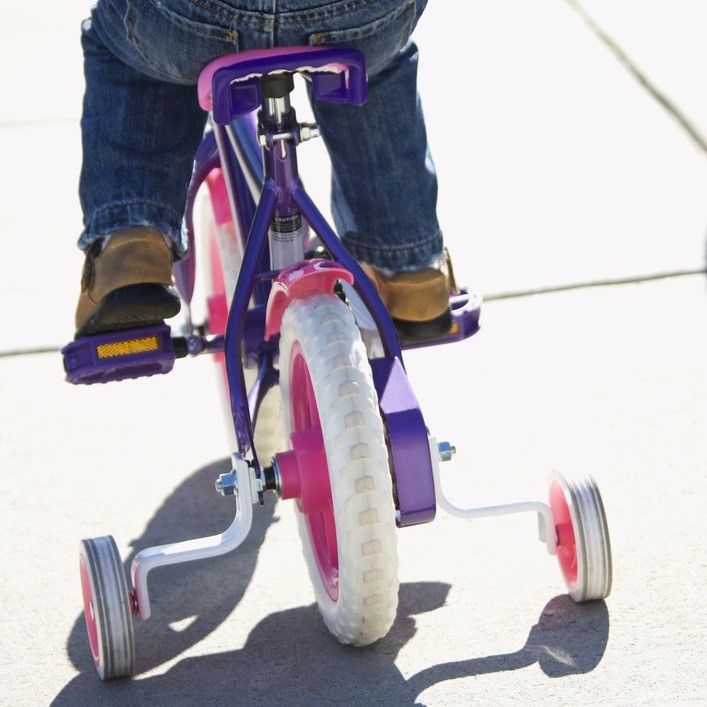1.jpg)

.jpg)


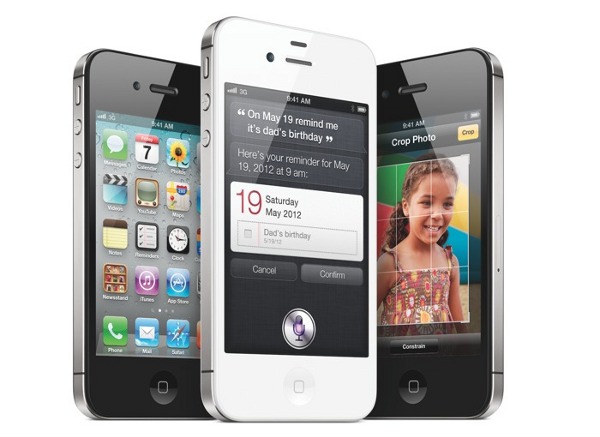

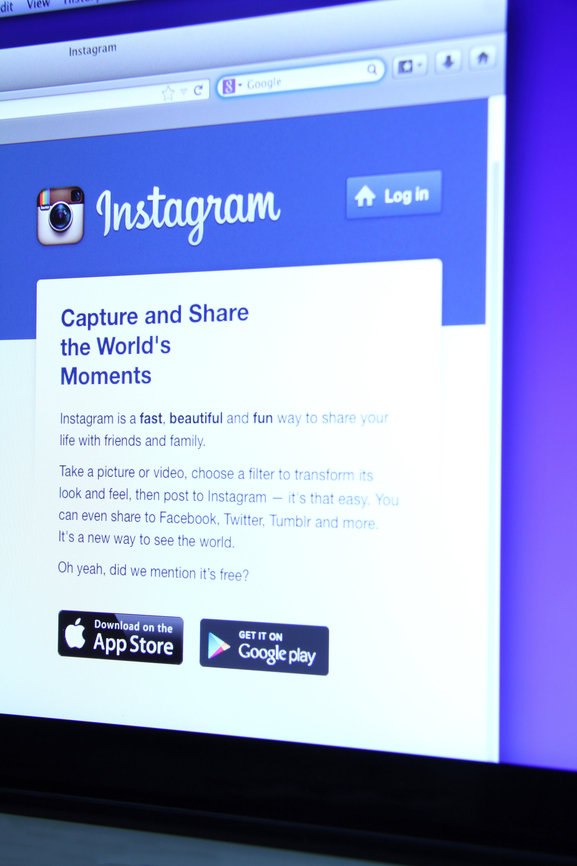
.jpg)
